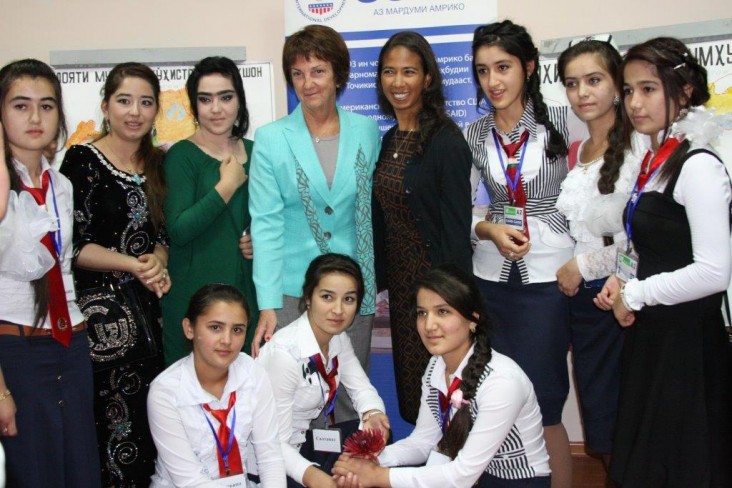
U. S. Government Celebrates International Literacy Day
For Immediate Release
Dushanbe, Tajikistan, September 23, 2014 – U.S. Ambassador Susan M. Elliot joined Deputy Minister of Education and Science Tojinisso Mahmadova, local education officials, teachers, and students as School No. 4 celebrated the 48th annual International Literacy Day in Danghara District of Khatlon Oblast.
Literacy Day is celebrated around the world as a reminder of the importance and power of literacy. According to UNESCO, literacy is a fundamental human right, and essential to meeting our shared goals of education for all. While great progress has been made worldwide, approximately 774 million adults in the world are not literate, and two-thirds of them are women. Literacy begins early, even before a child learns to read on his or her own; reading to children ignites their love of reading and lifelong learning.
USAID is a steadfast partner with the Government of Tajikistan in the education sector, placing special importance on education for all. In recognition of the 2014 International Literacy Day, the USAID Student Motivation Learning Program contributed 7,260 books to 165 schools in five Khatlon districts. Each school received a package of books containing folk tales, poems, and classic literature. Overall, 11,055 books for all ages have made their way from the program to school libraries in Khatlon Oblast.
Ambassador Elliot remarked at the event, “Our two governments collaborate to foster preschool children’s enthusiasm and love for books. These activities ensure children are literate and strengthen the culture of reading.”
The USAID Student Motivation Learning Program was collaboratively designed with the Ministry of Education and Science and school personnel to encourage students to stay in school. The Ministry and education officials acknowledged the value of USAID’s support and guidance offered through SMLP. The program has helped 83 schools in Khatlon to identify 3,250 students who were struggling in school. Schools closely monitor these students’ attendance and course work, and communicate with their families to better support their continued education. The program also provides after school tutoring to boost learning in core subjects. Program interventions are being evaluated to determine their effectiveness. Ultimately, the program will generate guidance on successful strategies that can be used for improving student motivation and retention throughout the country.







Comment
Make a general inquiry or suggest an improvement.